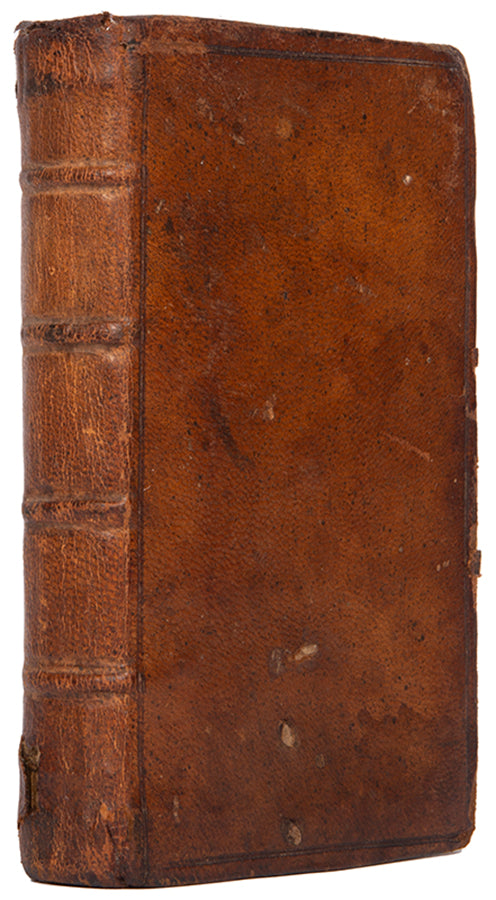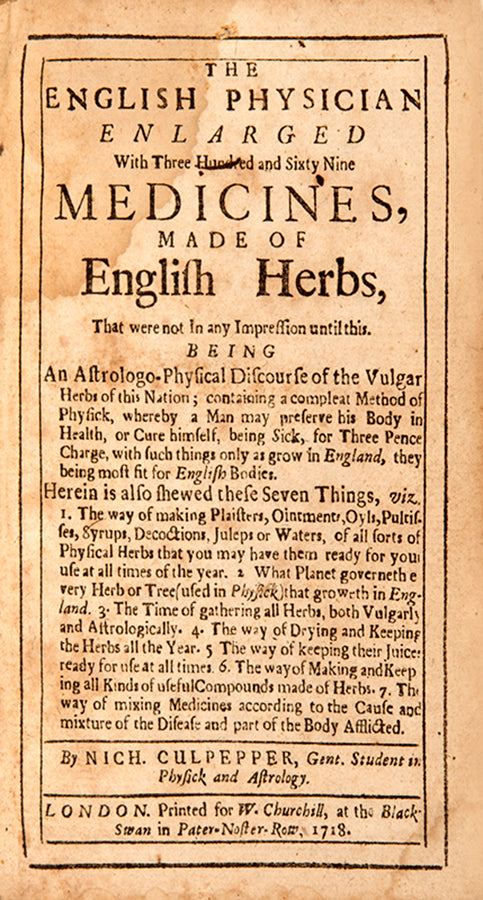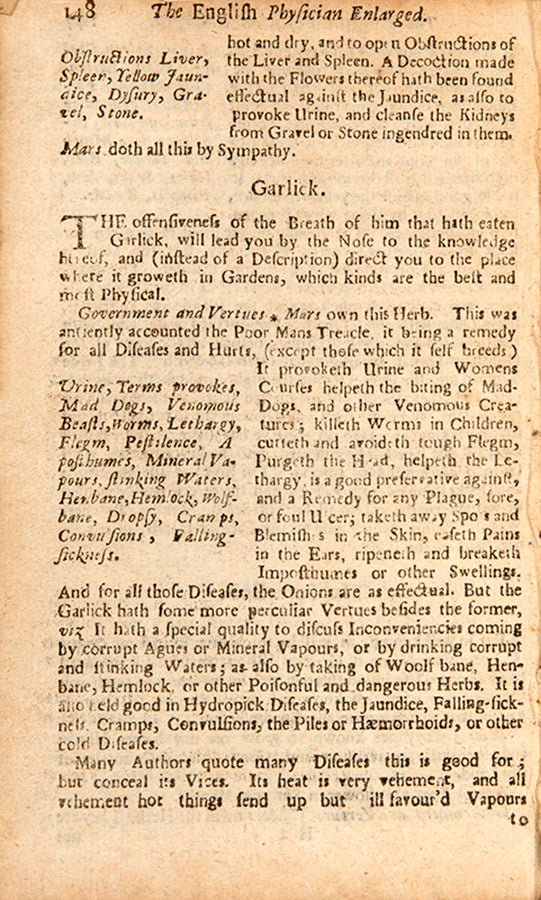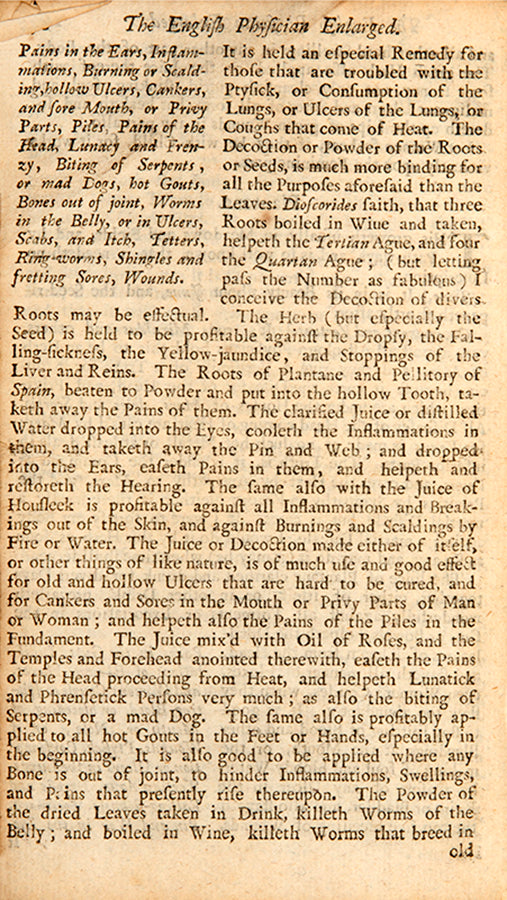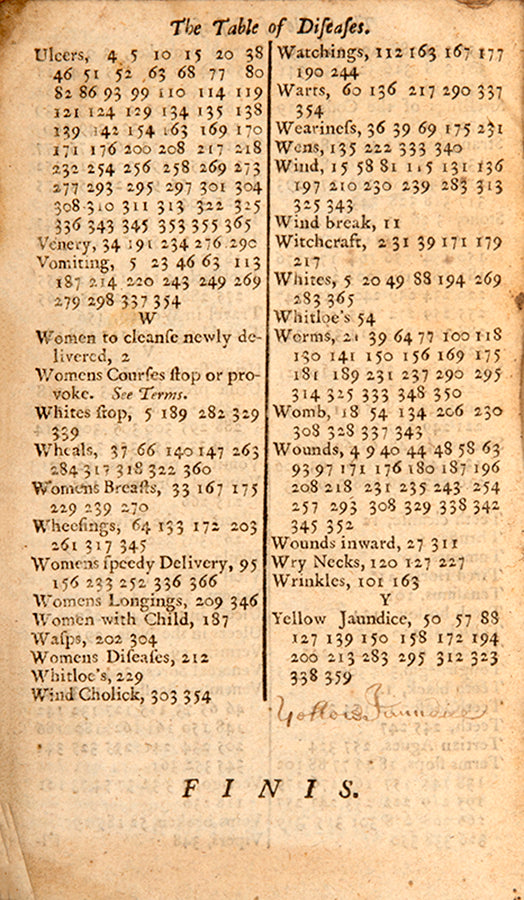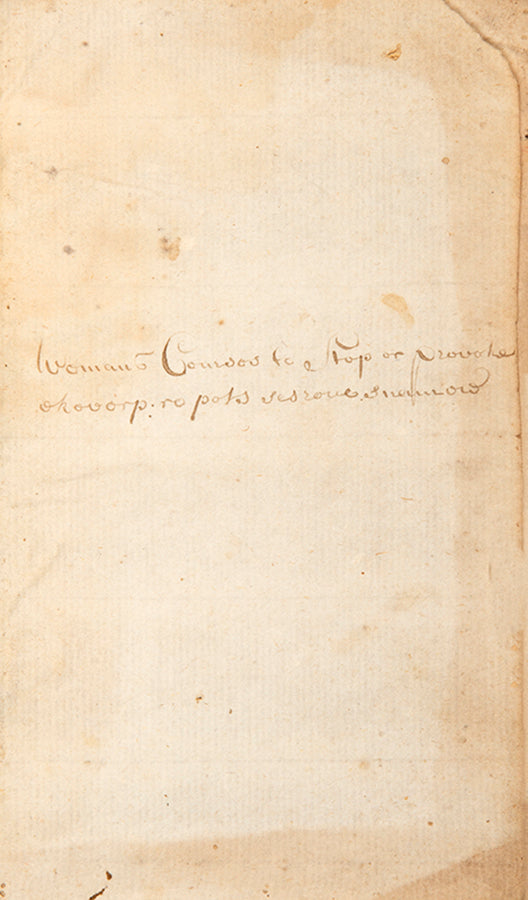CULPEPER, Nicholas.
The English Physician Enlarged
The English Physician Enlarged
with three hundred and sixty nine medicines, made of English herbs that were not in any impression until this...
Stock Code 113396
London, for W. Churchill, at the Black Swan in Pater-Noster-Row, 1718
In the Galenic paradigm that dominated medical thought during the medieval and early modern period, ailments were caused by imbalances of the four humours. It was thought that the uterus could become 'strangled' or 'suffocated', a condition in which excess humours were not dispelled through menstruation, and which could affect both fertility and the woman's overall health. Hundreds of substances were believed to provoke menstruation, and some could also be taken to expel the placenta or a dead fetus, or to cause an abortion, though this was generally discussed as a contraindication by male medical authors. Other substances could be used to stop the menses in cases of long or heavy periods (van de Walle, 'Flowers and Fruits: Two Thousand Years of Menstrual Regulation', Journal of Interdisciplinary History, autumn 1997).
There was certainly great interest in regulating menstruation and reproductive health among both women and male physicians, as indicated by the use of this copy. The manuscript line on women's courses on the rear endpaper precisely matches a line from the index on the facing page, which directs the reader to a list of 26 pages relevant to 'stopping the terms' and 29 for 'provoking' them. A number of leaves of the text have been dog-eared, some corresponding to information on menstrual afflictions. For instance, the marked page on nettle describes a decoction of the leaves in wine as 'singular good to provoke Women's courses, and settle the Suffocation, strangling of the Mother, and all other Diseases thereof; as also applied outwardly with a little Myrrh' (p. 231). Darnel (a toxic mimic of wheat) 'stayeth... women's bodily issues' and mustard 'is of good effect to bring down women's courses'. Hops 'bringeth down women's courses', and horehound on the following page 'is given to women to bring down their courses' (these marked by an extra-large flap, perhaps to indicate multiple relevant pages). Some leaves that show evidence of old folds are also connected to women's health: alkanet (a type of borage) 'draws forth the dead child'.
While a former owner clearly saw this as a significant, practical medical topic, the purpose of the mirror-writing is still unclear. Was it simply an activity to while away a few moments, or did it have deeper, perhaps spiritual or esoteric, meaning for someone struggling with their health or that of a loved one?
12mo (17 x 10.5 cm); ownership inscription in pen to the front pastedown, manuscript note in pen to rear free endpaper recto, a few manuscript annotations in pen to the last few leaves of text, page folds, slight dampstaining to upper gutter margin of title and prelims, lacking front free endpaper; contemporary sheep, ruled in blind, rubbed with loss of leather from portions of the spine and edges; [16], 386, [10]pp.
ESTC T136622.
Couldn't load pickup availability
Provenance
Provenance
Delivery
Delivery
We offer secure and express delivery on all local and international orders of rare books, maps and prints placed through this website.
About us
About us
Shapero Rare Books is an internationally renowned dealer in antiquarian & rare books and works on paper.
Our Bookshop and Gallery can be found in the heart of Mayfair at 94 New Bond Street, where most of our stock is available to view and on public display.
We exhibit at major international art fairs, including TEFAF (Maastricht and New York), Frieze Masters, Art Miami and Masterpiece London, as well as antiquarian & rare book fairs including New York, Paris, London, Los Angeles, San Francisco and Hong Kong.
Ask us a question
Ask us a question
